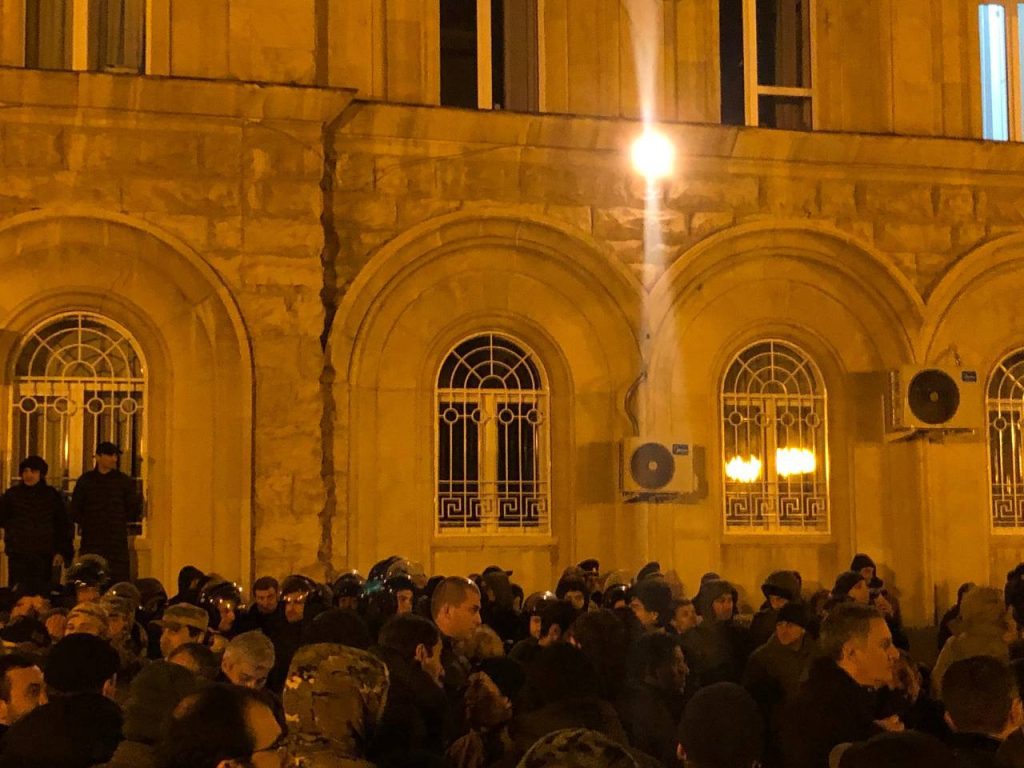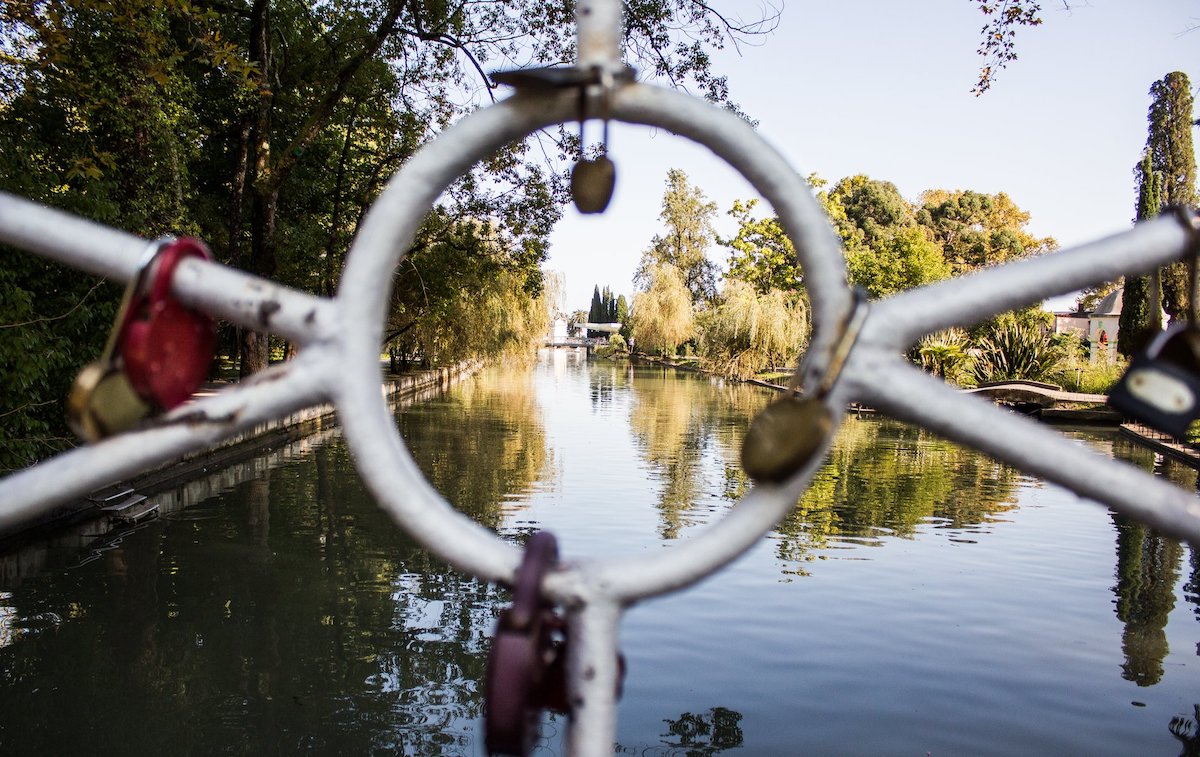Parliament siege in Abkhazia amid Pitsunda state dacha transfer reconsideration
Abkhazia protests Pitsunda state dacha transfer to Russia
By the evening of December 26, hundreds had gathered at the Abkhazian parliament building. A parliamentary meeting is scheduled for December 27 to decide on ratifying the agreement to transfer the renowned state dacha in Pitsunda to Russian ownership. Protesters aim to thwart the ratification.
- Abkhazia to transfer more than 180 hectares in the best resort of Pitsunda to Russia
- About the properties which Russia wants from Abkhazia – Commentary
All security forces have been deployed to secure the government buildings complex. Videos circulating on social media show columns of buses heading to Sukhum to block access routes to the center. Barriers are being erected around the parliament.
What are the demands of the protesters?
Russian officials have been utilizing the renowned “Khrushchev state dacha” exclusively and without charge for many years. However, a year ago, the Kremlin proposed transferring ownership of the state dacha. Abkhaz president Aslan Bzhania claimed that even president Vladimir Putin personally discussed this with him.
The agreement with Russia for the transfer of the state dacha was signed in January 2022, and the Russian State Duma promptly ratified it. However, in Abkhazia, the agreement sparked widespread protests, and it was not brought up for discussion in the People’s Assembly.
The crux of the opposition’s and the majority of society’s discontent in Abkhazia lies not in the act of transferring the facility to Russia itself but in the conditions outlined in the agreement.
The primary source of indignation is the incorrect indication of the coordinates of the Pitsunda state dacha in the agreement transferred to Russian ownership.
It was discovered that, aside from the 180-hectare territory of the dacha itself, a significant portion of the Pitsunda resort’s territory is also slated to go to Russia.
Both sides acknowledged the mistake. However, Moscow envisions a resolution where the Abkhaz parliament initially ratifies the agreement in its current form and then amends it through a separate act. Faced with considerable public pressure, the Abkhaz parliament rejected this proposal, and the ratification issue was deferred.
Simultaneously, opposition lawyers emphasize that the coordinate error is just the most prominent issue. In total, they identified approximately 30 points in the agreement that contradict Abkhaz legislation.
What can be anticipated from the parliament?
Initially, the parliamentary meeting was scheduled for December 28, with the united opposition and civil society representatives planning to gather outside the parliament to impede the vote.
Unexpectedly, the meeting was rescheduled a day earlier, to December 27.
In the summer of 2022, President Aslan Bzhania stated, “We must relinquish the state dacha, otherwise Russia will turn its back on Abkhazia.”
Now, Bzhania has reintroduced the ratification of the agreement on transferring the state dacha in Pitsunda to Russian ownership. The president asserts that “the coordinates in the document have been changed in agreement with Moscow” and actively campaigns for deputies to support him.
Ratification of the agreement requires 18 votes out of 35, and it is presumed that these votes exist. According to opposition monitoring data, 22 out of 35 deputies of the People’s Assembly intend to support ratification.
However, it remains uncertain how MPs will behave when thousands of protesters are expected to gather outside the parliament on December 27.
The opposition openly expresses its intention to prevent parliament from ratifying the agreement through any means necessary. They have already declared an indefinite protest.
“We will not go anywhere until the issue is resolved in favor of the people,” stated one of the protest leaders, Hero of Abkhazia, Levan Mikaa.




















